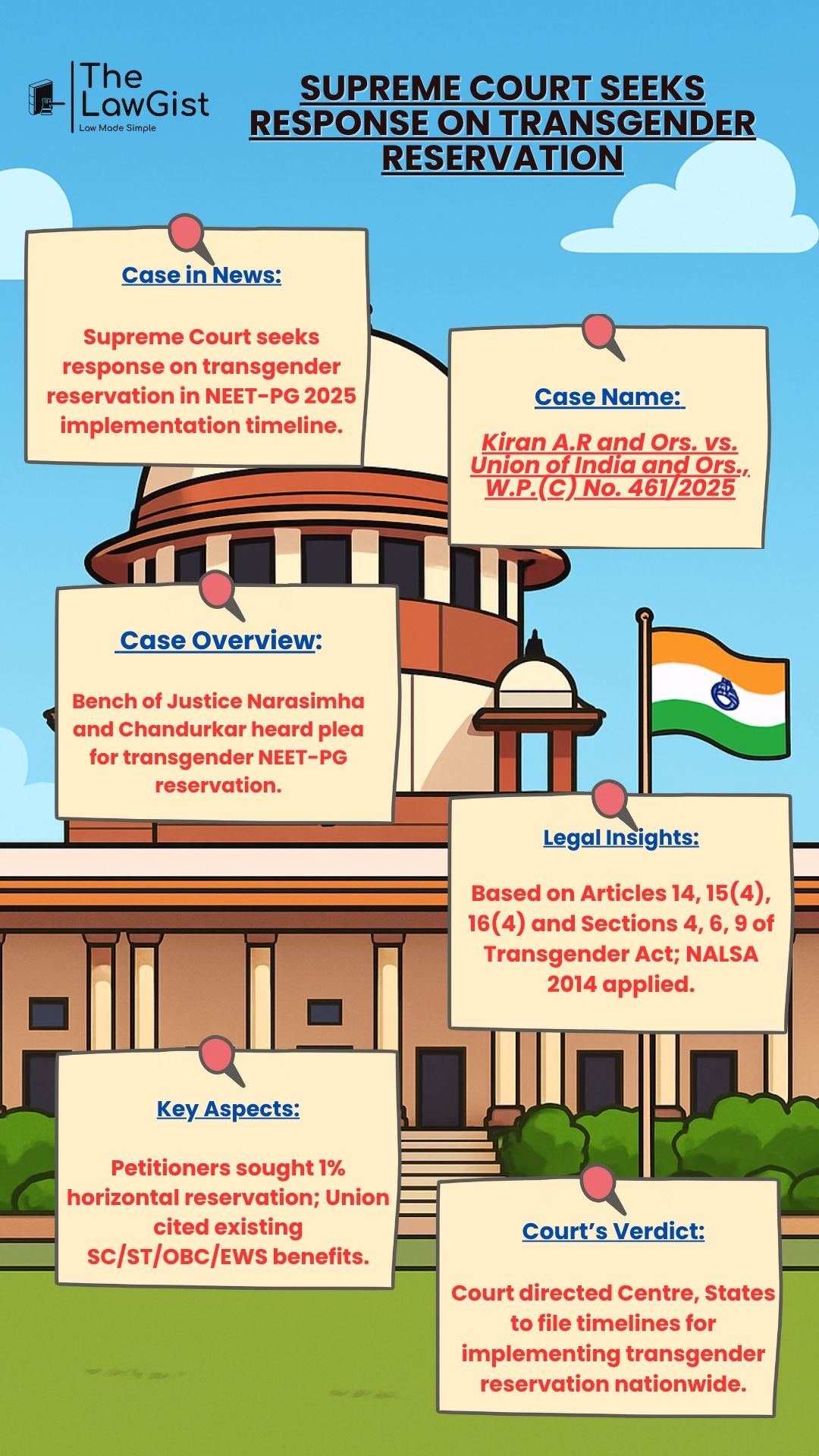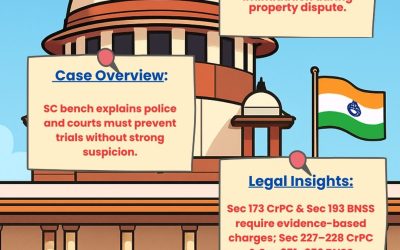
Supreme Court directs Centre and States to outline implementation plan for transgender reservation in NEET-PG as per NALSA judgment.
CASE IN NEWSThe Supreme Court seeks response on transgender reservation in NEET-PG 2025 directing the Centre and States to clarify timelines for implementation of reservation policies for transgender persons . |
Discover powerful Latin Maxims and simplify complex legal terms in seconds.
CASE OVERVIEW
CASE NAME: Kiran A.R and Ors. v. Union of India and Ors., W.P.(C) No. 461/2025
Before a bench comprising Justice P.S. Narasimha and Justice A.S. Chandurkar, the Supreme Court of India heard a writ petition filed by two transgender doctors seeking reservation in NEET-PG based on the 2014 NALSA judgment . Senior Advocate Indira Jaising appeared for the petitioners, seeking interim relief for horizontal reservation in both All India and State quotas, while the Union defended that transgender candidates could avail existing category reservations .
Step into the world of justice with Courtroom Chronicles
KEY ASPECTS
The case primarily focuses on whether transgender candidates are entitled to a separate horizontal reservation in postgraduate medical admissions under NEET-PG . It also questions the States’ readiness to implement the NALSA directives concerning educational inclusion .
- Petitioners challenged the NEET-PG notification for excluding transgender persons from reservation benefits .
- They sought 1% horizontal reservation within each vertical category (SC/ST/OBC/EWS) .
- The Union of India argued that transgender candidates could use existing caste-based reservations .
- The Bench emphasized a nationwide framework rather than limited relief to two individuals .
LEGAL INSIGHTS
The Court revisited constitutional and statutory provisions ensuring equality and protection for transgender persons. It underscored that reservations must align with the constitutional mandate of social justice .
- Article 14 and Article 15(1)–(4) of the Indian Constitution prohibit discrimination and empower the State to make special provisions for socially and educationally backward classes .
- Article 16(4) enables reservation in public employment for backward classes not adequately represented .
- In NALSA vs. Union of India (2014) 5 SCC 438, the Court declared transgender persons as a “socially and educationally backward class” entitled to reservations in education and employment .
- Sections 4, 6 and 9 of the Transgender Persons (Protection of Rights) Act, 2019 recognize the right to self-identified gender and mandate non-discrimination in education and employment .
COURT’S VERDICT
The Supreme Court directed the Centre and all States to file affidavits specifying the time frame for implementing transgender reservation in NEET-PG and other educational programs . While refusing interim relief for two individuals, the Court stressed that the broader implementation of the NALSA judgment should benefit the entire transgender community ensuring long-term structural inclusion .
Source – Supreme Court of India
Read also – Indian Constitution
The LawGist ensures exam success with quality notes—TPL, Current Affairs, Recent Judgments, and more. Backed by trusted resources and videos, The LawGist is every aspirant’s first choice. Discover more at thelawgist.org.







